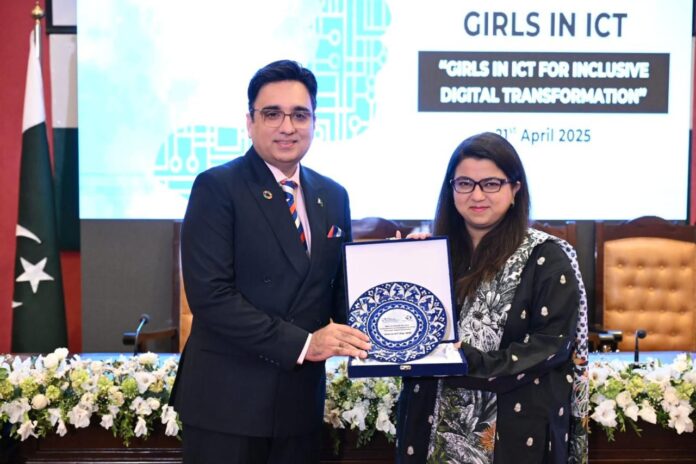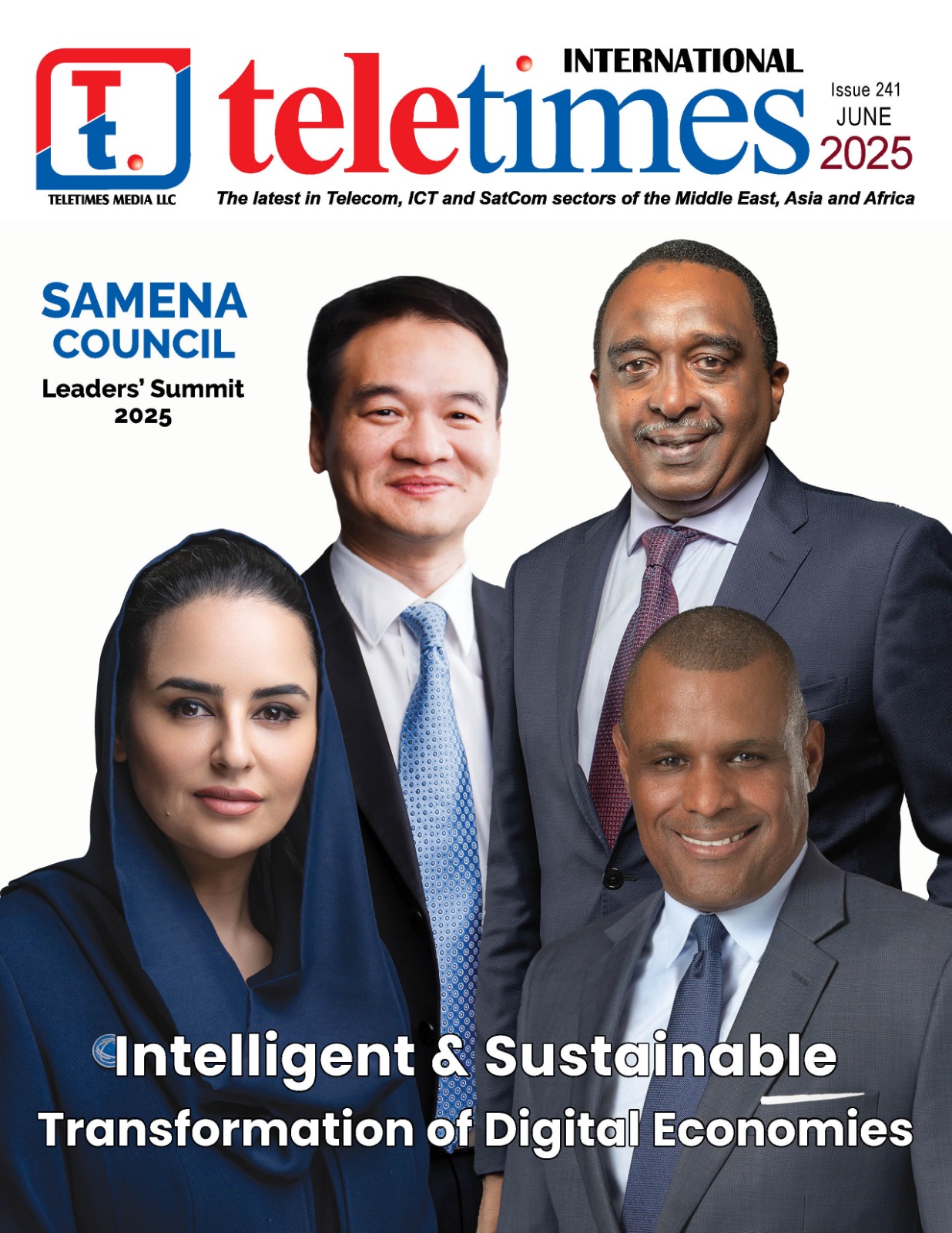Federal Minister for Information Technology and Telecommunication, Shaza Fatima Khawaja, emphasized that technological advancement and national progress are not possible without full gender inclusion.
Speaking at the event “Girls in ICT for Inclusive Digital Transformation,” organized by the Universal Service Fund (USF) in collaboration with Jazz to mark International Girls in ICT Day 2025, she highlighted the significant role of USF in promoting Pakistan’s IT industry.
“By connecting remote areas to the digital world, USF has empowered women, startups, freelancers, and social media influencers to tap into new opportunities, driving economic growth and innovation,” she said.
She also noted that Prime Minister Shehbaz Sharif has distributed 1.2 million laptops among the youth during his various tenures. Additionally, the Ministry of IT has provided freelancing training to 4.5 million people through its DigiSkills programs.
The ceremony was attended by senior officials from the Ministry of IT & Telecom, Parliamentary Secretary for IT & Telecom Sabeen Ghori, MNA Sharmila Faruqui, CEO USF Ch. Mudassar Naveed, CEO Mobilink Microfinance Bank Haaris Mahmood, GSMA Country Lead Saira Faisal, academia representatives, and prominent women entrepreneurs from the telecom and IT sectors.
Shaza Fatima reflected on her personal journey, stating that as a Pakistani woman, she has witnessed the transformative power of technology in a young woman’s life.
“Over the years, empowering women in technology has shifted from aspiration to action in Pakistan,” she said.
A consistent advocate for women’s inclusion in ICT, Shaza noted that many top-performing students in IT programs are female, and women-led tech ventures are gaining recognition on global platforms.
“This success reflects their relentless pursuit and the enabling policies that support them,” she added.
“Together, let us create a Pakistan where every girl can harness technology to fulfill her potential, and where empowerment is not a dream—but a digital reality.”
She reaffirmed that the Ministry of IT & Telecommunication is committed to building an ecosystem that supports, safeguards, and scales the ambitions of women in tech. Initiatives range from broadband expansion and safe online spaces to startup incubation and digital skills training, all with inclusion at their core.
USF’s Impact and Reach
Highlighting national broadband efforts, she shared that USF has:
- Awarded 161 projects
- Deployed broadband in over 21,600 mauzas
- Reached a population of 37.1 million people
- Contracted over 4,400 telecom sites, with more than 4,100 already deployed
- Laid 17,200 kilometers of Fiber Optic Cable (OFC), connecting over 1,000 towns and union councils
“Women and girls in many of these previously unserved areas are going online for the first time—to study, work, and lead,” she noted.
She added that this year, Rs. 23 billion in funding was allocated by the Prime Minister to USF.
“The Ministry of IT will continue to lead this journey with inclusivity at its core. However, we need all of you—as mentors, investors, role models, and allies—to accelerate this momentum,” she urged.
USF’s Future Initiatives
Earlier, USF CEO Ch. Mudassar Naveed welcomed attendees, saying it was an honor to celebrate International Girls in ICT Day 2025, a global initiative of the ITU since 2011.
“This day reminds us that inclusive digital transformation is not just a vision, but a necessity,” he stated.
He reiterated USF’s commitment to “connecting the unconnected” by expanding high-speed telecom infrastructure to Pakistan’s most underserved regions.
“When a new village comes online through a USF-funded OFC network or mobile tower, a girl gains access to the world. She can now stream tutorials, join online classes, or connect with a global community. This is where transformation begins.”
He also shared updates on upcoming projects. Although USF hadn’t initiated new projects over the past two years due to the focus on completing ongoing ones, they have now issued tenders for 16 new projects, marking the start of a new phase.
Upcoming USF Projects Include:
Next Generation Optical Fiber Cable (NG-OFC) projects to connect:
- Sialkot, Sanghar, Jhang, Sajawal, and Tando Muhammad Khan
Next Generation Broadband for Sustainable Development (NG-BSD) to cover:
- Badin, Chiniot, Abbottabad, Kalat, Umerkot, Gujranwala, Mandi Bahauddin, Kohat, and Khuzdar
NG-BSD (Small Lot) projects in:
- Attock, Sargodha, Khushab, Bahawalnagar, Sheikhupura, Hafizabad, Haripur, Mansehra, Mirpur Khas, and Sanghar
“These initiatives demonstrate USF’s commitment to inclusive, future-ready connectivity for underserved communities in Pakistan,” concluded Ch. Mudassar Naveed.












